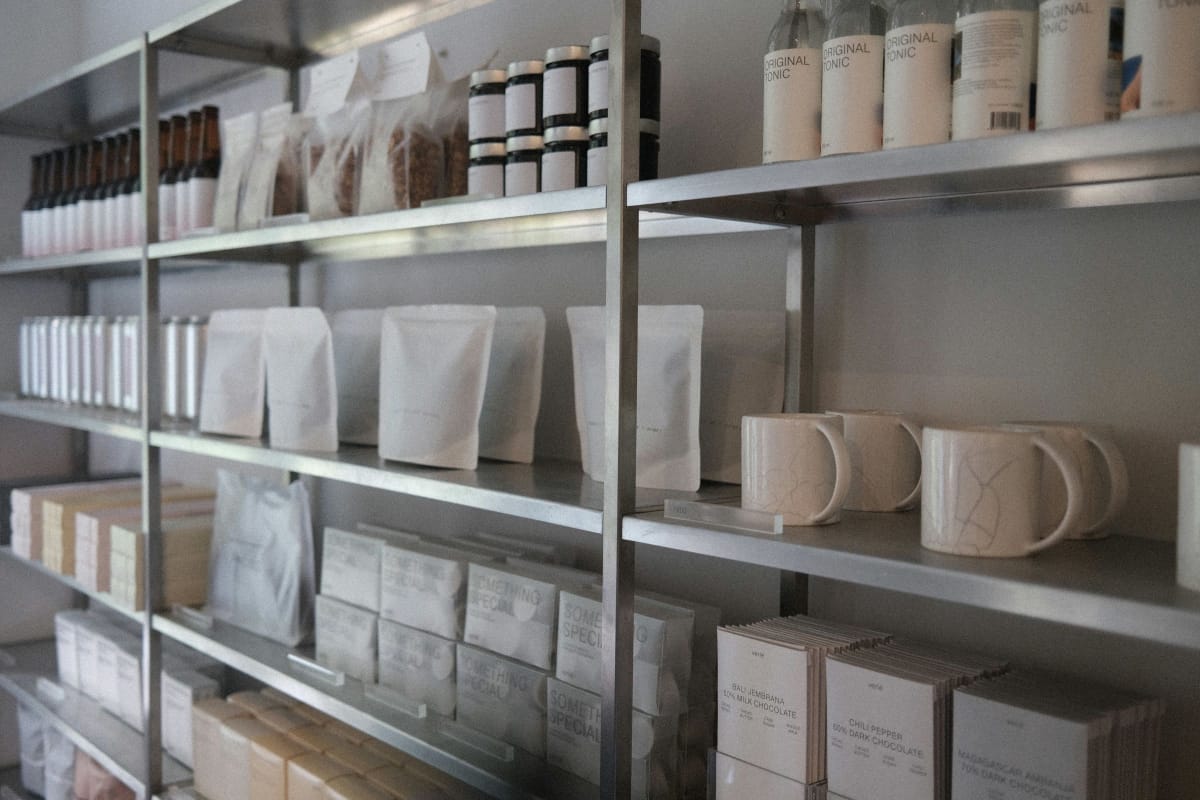The Top Tools Merchandisers in Retail Need in 2024
The evolution of retail technology has provided merchandisers with access to a wealth of data and sophisticated tools to help them grow. Let’s take a look at the top five tools that we’re seeing help merchandisers in retail increase efficiency and positively affect their bottom line.

It’s been a wild few years for your average retail merchandiser. Between the pandemic, the ensuing supply chain issues, the skyrocketing cost of, well, everything, and the international tensions threatening trade; ensuring that the right amount of goods and products are available at each retail location has not been a walk in the park.
Furthermore, with the maturation of the global ecommerce market, the barriers to entry for new retailers have significantly decreased, leading to an incredibly competitive marketplace. This surge in competition means that for businesses to stand out, they need to leverage every tool at their disposal effectively…which is where the most savvy, tech-forward brands can seize their opportunity. The evolution of retail technology has provided merchandisers with access to a wealth of data and sophisticated tools to help them grow. These advancements enable merchandisers to gain a critical edge over their competitors by optimizing their strategies and operations in ways that were previously unimaginable.
Let’s take a look at the top five tools that we’re seeing help merchandisers in retail increase efficiency and positively affect their bottom line.
1. Retail Data Analytics - 42 Technologies
In this fiercely competitive environment, the ability to harness and analyze data has become a superpower for retail merchandisers. Retail analytics platforms have become indispensable, and one leading the charge is the analytics solution offered by 42 Technologies. This data platform is designed specifically for the retail industry, enabling users to dive deep into their sales data to uncover trends, patterns, and actionable insights. Using the platform, merchandisers can easily identify which products are performing well and which are not, allowing them to make informed decisions about inventory management, marketing strategies, and customer engagement initiatives.
42 Technologies excels in simplifying complex data, presenting it in an accessible and actionable format. Merchandisers can leverage this platform to optimize pricing strategies, improve product assortment, and even forecast future trends. This level of insight is critical for staying ahead in a competitive market. By understanding customer preferences and behaviors in real-time, retailers can adapt more swiftly and efficiently than ever before, ensuring that they meet their customers' needs while maximizing profits.
2. Retail Foot Traffic Analysis - RetailNext
Accurately measuring foot traffic is critical for retail merchandisers aiming to optimize store performance and customer experiences. If the flow of traffic is missing vital products you want to move, you need to know that there is something wrong with your showfloor’s layout or in-store display marketing. RetailNext emerges as a pivotal tool in this domain, offering sophisticated technology to accurately track and analyze foot traffic within stores. This platform provides real-time insights into customer movements, dwell times, and peak shopping hours, enabling merchandisers to understand how customers interact with their store environments.
RetailNext's capabilities extend beyond mere foot traffic analysis. The tool also integrates with sales data and inventory systems, offering a comprehensive view of store performance. This integration allows merchandisers to correlate foot traffic patterns with sales outcomes, identifying opportunities to enhance sales conversion rates and optimize inventory management. By leveraging RetailNext, retailers can not only improve the in-store shopping experience but also drive operational efficiencies, ultimately contributing to increased profitability and customer satisfaction.
3. Retail Planogram Management - DotActiv
Planogram management is another area where technology can provide a significant advantage for retail merchandisers. DotActiv's planogram management tool stands out as a leading solution in this space. It allows merchandisers to design and implement effective store layouts and shelf plans that optimize product placement and visibility. By using DotActiv, retailers can ensure that their stores are laid out in a way that maximizes sales and enhances the shopping experience for customers.
DotActiv's software also includes advanced analytics features, enabling merchandisers to evaluate the performance of different layouts and adjust their strategies based on solid data. This can lead to more efficient use of space, improved customer satisfaction, and, ultimately, increased sales. In today's competitive retail environment, the ability to quickly adapt and optimize store layouts can provide a crucial edge.
4. AI-Powered Merchandising Strategy - Kimonix
“Merchants” may seem like an old-timey word now, but the savviest ones are very up-to-date on the latest and greeted AI tools to help their bottom line. Kimonix steps into this space as a cutting-edge solution, offering a suite of AI-driven tools designed to optimize pricing, promotions, and inventory management. By analyzing vast amounts of data, Kimonix provides actionable recommendations that can significantly enhance sales and profitability. Its ability to predict market trends and customer demand with high accuracy allows retailers to stay one step ahead, ensuring that their products are priced right, promoted effectively, and stocked optimally.
Moreover, the platform's real-time analytics feature helps in quickly identifying shifts in consumer behavior, market dynamics, or operational bottlenecks, allowing for immediate adjustments to strategies. This agility is vital in the fast-paced retail environment where opportunities and challenges arise rapidly. By integrating Kimonix into their strategy, merchandisers can not only optimize their operations but also create a more personalized shopping experience for their customers, leading to higher satisfaction and loyalty.
5. Retail CRM - Endear
Finally, a robust retail Customer Relationship Management (CRM) system is essential, and Endear stands out in this domain. Endear's CRM is tailored for the retail industry, enabling businesses to nurture relationships with their customers through personalized communication and engagement strategies that provide a clienteling experience. By leveraging detailed customer data, merchandisers can create targeted campaigns, offer personalized recommendations, and foster loyalty.
Endear's platform integrates seamlessly with other retail tools, providing a comprehensive view of each customer's journey. This holistic approach allows retailers to enhance customer engagement, improve retention rates, and ultimately drive sales growth. In an era where customer experience is paramount, a specialized retail CRM like Endear is invaluable.
The retail landscape in 2024 demands a high level of adaptability, strategic insight, and technological savvy from merchandisers. The tools discussed above—from retail analytics and foot traffic tracking, to planogram management, AI-powered optimizations, and specialized CRMs—offer powerful solutions that can help retailers navigate this complex environment. By leveraging these tools, merchandisers can not only gain a competitive edge but also create a more engaging and satisfying experience for their customers.

